“Become a Spaceflight First Responder”
Spaceflight Advanced Medical Support Certifications
Certifications include the following:
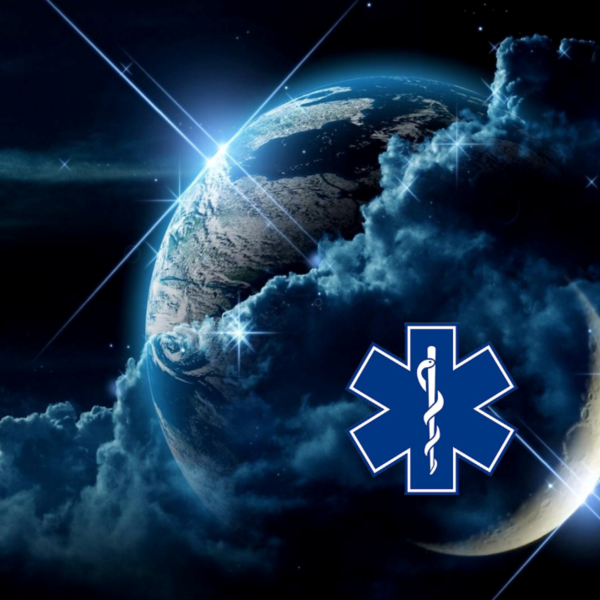
Spaceflight
First Aid

Spaceflight First
Responder

Spaceflight Advanced
Life Support
Why we Need More Spaceflight First Responders
It has been well established that humans entering any extreme environment benefit substantially from redundancy in selected capabilities. This is particularly true of redundancies in medical support capabilities.
The image sets below represent two hypothetical spaceflight scenarios. The first is a spacecraft in flight, while the second is a surface habitat (Lunar, Mars) or space analog habitat (HERA, Mars Desert Research Station, Concordia Station Antarctica, etc.). In each case, what is shown is a crew and passenger composition in which the members have varying degrees of training in spaceflight medical support.
The one image in each set represents a hypothetical spacecraft, crew, passenger, or habitat composition in which only a single member (red) is trained in spaceflight advanced life support. While this may be adequate for many circumstances, it may be severely limiting for certain crises (especially if the lone advanced life support provider is the one who suffers the emergency).
In the other scenario, all members have some training in spaceflight medical support. This proposed composition includes:
- one trained in spaceflight advanced life support (red)
- two trained as spaceflight first responders (blue)
- three trained in spaceflight first aid (green)
We propose that this configuration affords redundancies in capabilities and creates a ‘team’ environment in which flight members are better prepared to work together to meet challenges. It also assures that medical support team leaders have capable members on board who can carry out first aid or first responder instructions, including those from the ground-based medical directors.
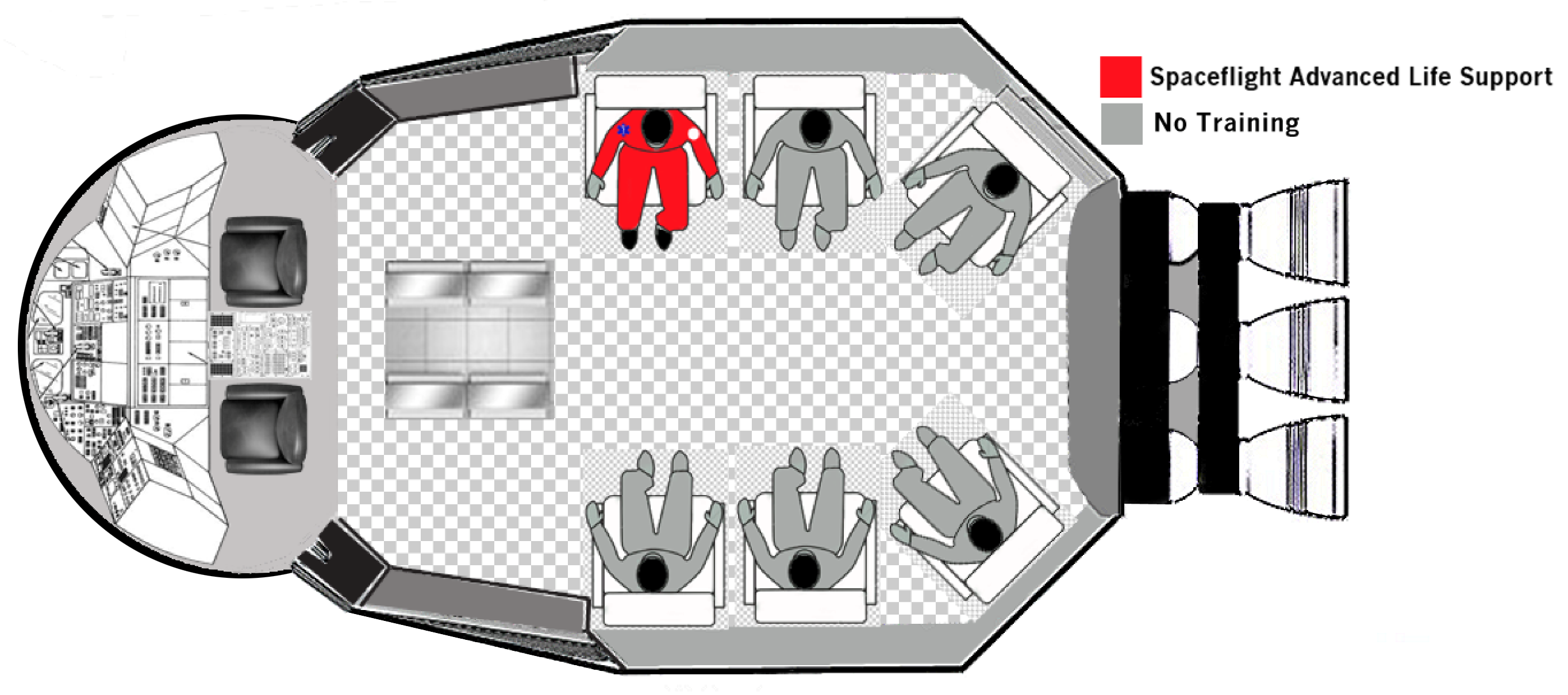
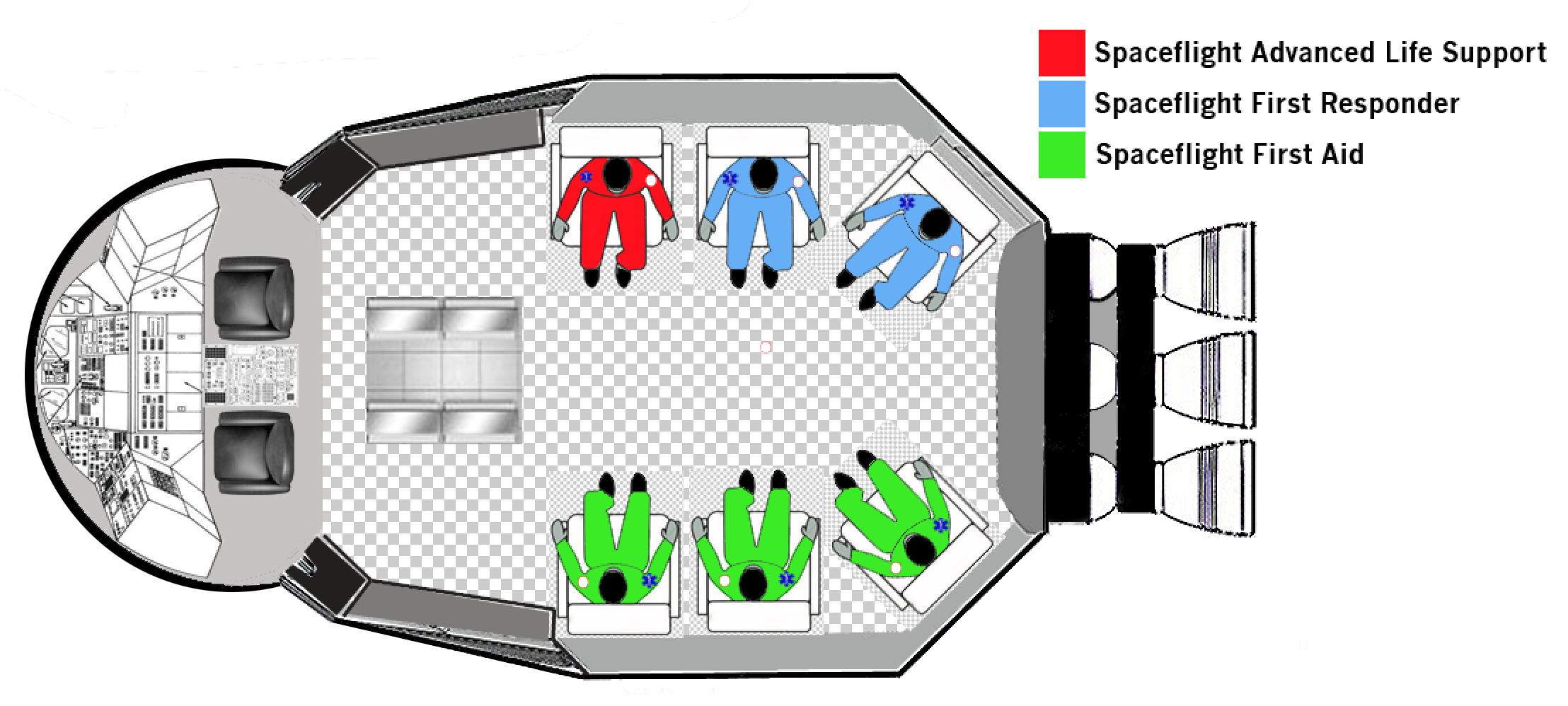
An additional benefit to such training is that these skills are translational to use on Earth, creating a greater number of first responder-enabled people in our communities. Moreover, training in spaceflight first responder skills also affords more people the ability to authentically become part of the spaceflight community, as the commercial spaceflight sector takes flight.
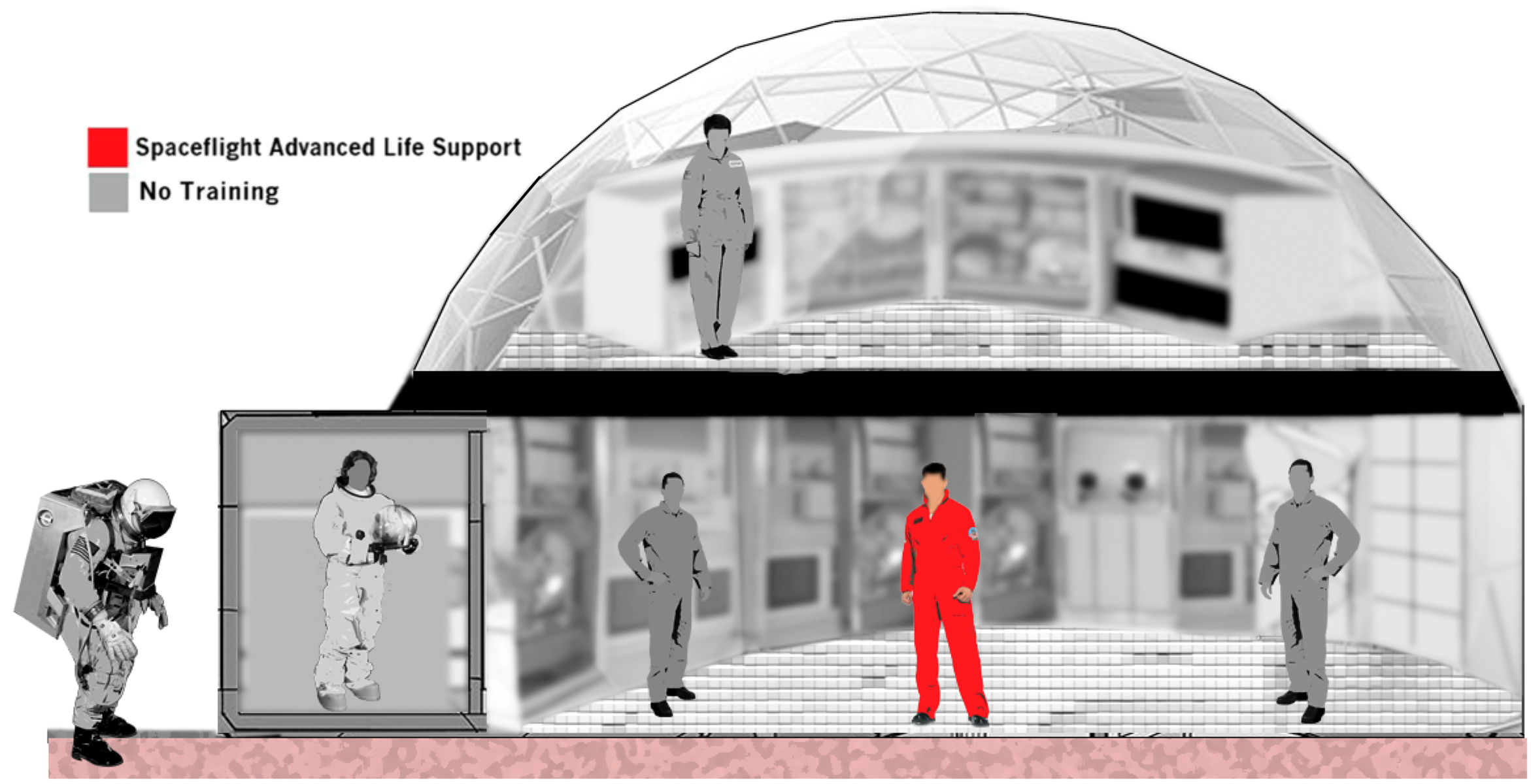
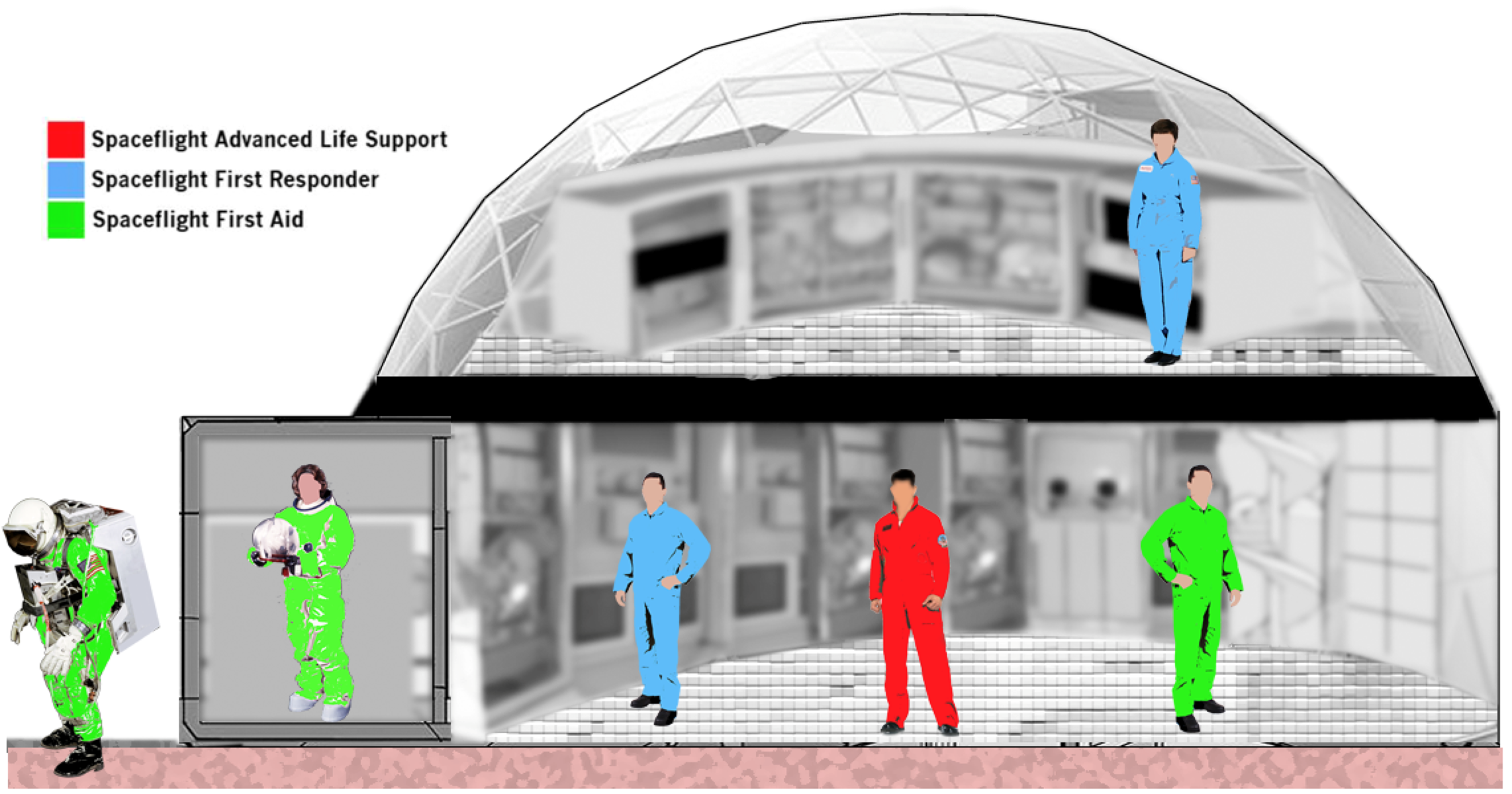
Curriculum
The curriculum devotes considerable time to practical sessions and realistic simulations that prepare students for the stress of actual emergency situations in the field. Emphasis is placed on good patient assessments and hands on practice. The program uses a systems-based approach to medicine, to identify a progression of problems within each system and to be able to make informed risk/benefit decisions for each problem. An understanding of risk assessment and prevention/early intervention is emphasized, as part of a decision-based assessment. Each program contains a telemedicine component, which enables students to effectively communicate with medical leadership, based on the ground.
Faculty & Purpose
Our faculty and curriculum developers have widespread experience and have conducted training in extreme environments, including aviation, spaceflight (ISS), battlefield medical response (SEAL teams, Special Forces), search and rescue (e.g. Himalayan search and rescue), remote space analogues (Antarctica), high altitude research, oceanic research (NOAA), oceanic expeditionary (National Geographic), jungle expeditionary (Geoversity), artificial gravity research (NASA), HALO parachuting (high altitude, low opening), Naval Aerospace Medicine Operations, parabolic flight research, and others.
These Spaceflight Medical Support Certification Programs are designed to:
- Elevate the safety of suborbital flight
- Build a culture of safety, as we evolve to point-to-point and orbital flight
- Assure that more passengers, crew, and support teams are first responder enabled
- Build a growing community of space aspirants on earth who seek specialized training relevant to space
A Culture of First Responders
We envision a near future in which all space participants will have, at minimum, Spaceflight First Aid certification. We further envision that every flight will have one or more participants certified in either Spaceflight First Response or Spaceflight Advanced Life Support. This will enable a professional capability in pre-mission risk management, a congruent response to unanticipated events in flight, and assure a capable cohort of passengers and crew, should telemedicine directives be required from ground-based medical staff.
This should be of particular relevance to flight providers, ground crews, ground emergency services, training organizations, paying spaceflight participants, physicians, government, and others.
It will also give birth to a robust safety capability, as the field evolves to point-to-point transport and orbital excursions.
For More Information on Registration and Course Schedules, Please Contact Us: info@sovarisaerospace.com
